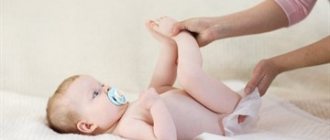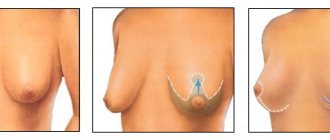How a night's sleep depends on the day you spend
Healthy and adequate sleep is a basic need of the body. If the baby does not get enough sleep, this will affect his development and mental abilities. Children grow in their sleep; a well-rested child is distinguished by good physical development and a strong nervous system.
Lack of sleep is closely related to behavior. If the baby sleeps poorly and little, during the day he behaves restlessly, absent-mindedly and capriciously. Surprisingly, behavior during the day can affect the quality of sleep. Children who experience stress during the day cry a lot, have difficulty falling asleep, and often wake up.
Parents are recommended to organize the day so that active games occur during the daytime. In the evening before going to bed, you should not allow yourself to watch TV or play with mobile devices.
On a note! The condition of the parents depends on the quality of the baby's sleep. If babies don’t sleep at night and take a long time to fall asleep, then parents don’t get a full rest in the morning. Mom’s irritation is transmitted to everyone, resulting in a vicious circle.
What to consider when putting your child to sleep during the day or at night
How to put your child to sleep in the evening without crying in 5 minutes
Most often, sleep problems occur in children from 4-5 months. Until this time, there is no point in accustoming the child to the regime - newborns constantly wake up from hunger. In order for the baby to sleep for the required 3-4 hours before the next feeding, it is important to ensure that he eats well and that optimal and favorable conditions are provided to him.
In order to avoid problems when the baby does not sleep after feeding, you can follow the recommendations of specialists:
- Determine a feeding schedule. They try to organize the intervals between meals so that they are convenient for the mother. Gradually reduce nighttime meals.
- In order for the baby to quickly get used to the regime, they adhere to systematic and consistent actions. After waking up, the child is given time to stay awake, allowed to take air baths, and done gymnastics. Up to 3 months of age, babies immediately fall asleep after feeding.
- During the day, babies should be physically tired so that they themselves want to sleep. When the baby begins to yawn, he is laid down. If you miss this moment, the baby will endure it, and it will be difficult for him to sleep.
- Sleepwear should be as comfortable as possible; it is advisable to purchase items with seams facing out. If there is discomfort, the child will bend and squirm.
- The sleeping place is organized as safe and comfortable as possible.
Immediately after waking up, the baby is allowed to get acquainted with the world around him and play
Advice. It is not recommended to use a stroller for sleeping at home, as children associate it with walking.
How to find the reason
It is quite difficult to determine the cause of poor sleep without the help of doctors. If it is noticed that bottle feeding is causing the problem, it is recommended to use a different formula. Be sure to study the composition - it should be different from the previous one. Another recommendation from doctors is to feed in several doses. Usually this is enough for the child to be satisfied and fall asleep sweetly.
If the problem with sleep remains even after additional feeding or changing the formula, parents are advised not to carry out experiments and consult a doctor.
After the examination, the doctor will certainly find out the reason stimulating sleep disturbances in the child.
It is recommended not to delay visiting a doctor if you have additional problems accompanying sleep disorders. If the baby is capricious, cries immediately after eating artificial food, stool abnormalities or vomiting are noticed, be sure to go to the doctor.
Why doesn't a newborn fall asleep after feeding?
Newborn's daily routine for 1 month
Usually, after feeding, the baby falls asleep, this is facilitated by sucking movements, during which he gets tired. The melanin contained in milk relaxes. If a newborn does not sleep after feeding, there may be various reasons for this.
Belching in a baby
During feeding, the baby may trap air that collects in the stomach. Its presence prevents the baby from falling asleep. After eating, the mother needs to hold the baby upright until he burps. Then you can calmly put the baby to bed.
The absence of belching after eating can provoke the accumulation of gases, which cause unpleasant conditions: bloating, colic. All this brings pain and inconvenience to the baby, makes it difficult to fall asleep after feeding, the baby begins to be capricious, arch, scream, and sometimes strain when he cannot poop. Only after the pain and discomfort have disappeared does he fall asleep.
Colic and bloating in the tummy can disrupt sleep
Overexcitement or lack of activity
Gradually, children begin to sleep less than play, this is the norm. After sleep, the baby should be allowed to stay awake for a while and look around. Before feeding, the baby must be physically tired.
Staying awake for too long has a negative effect on falling asleep. When overtired, children have trouble falling asleep, cry, and are capricious. Any stressful or overly emotional situation can also affect your sleep. Therefore, 1-1.5 hours before bedtime, active, fun games and entertainment, including watching cartoons, are excluded.
Hunger and the need to suck
At first, infants wake up due to a feeling of hunger. For the same reason, they may refuse to rest. Mothers should take into account that as children grow, their need for breast milk or formula increases. A hungry child will fall asleep for a short time.
In the first months of life, babies need protection. This feeling is provided to them by the sucking reflex, thanks to which children relax and fall asleep. If the baby doesn’t have enough of his mother’s breast, then you can offer him a pacifier or let him lie next to him for a while.
Discomfort
After feeding, the newborn does not fall asleep for a long time, and begins to grunt and spin if he is uncomfortable and uncomfortable. The main reasons may be:
- wet or dirty diaper;
- cold or heat indoors;
- too dry air;
- uncomfortable clothes.
If you eliminate the factor that prevents you from falling asleep, the problem will disappear.
The need for mother's affection
Children constantly need care and attention from the closest person - their mother. If your baby is capricious before going to bed, you can try to calm him down with your warmth and affection.
Sometimes babies just need their mother's voice to fall asleep
Advice. The mother needs to take the baby in her arms and talk to him gently. Often this is enough.
Useful tips
There are several useful tricks that will help you cope with the problem, but only if the reason for lack of sleep is not a serious illness. Only a doctor can help a sick baby.
The first rule is to give the child clean boiled water between uses of the artificial formula. This will prevent constipation, which often occurs after feeding.
When feeding a baby, also take into account that babies develop, gain weight and grow differently. Their need for food is also different, so it often turns out that the recommended norm is not enough, and the baby remains hungry after feeding. It is easy to verify that there is a lack of food - if, after consuming a larger portion, the newborn feels good, does not spit up, or is capricious, then this is the reason.
Many reasons can cause sleep problems in a newborn who is on artificial feeding. Some of them are safe for a small organism, others lead to serious complications. Parents are not recommended to find out the factors stimulating lack of sleep - only a doctor can accurately determine the cause of the disorders and advise effective methods for eliminating them.
When to suspect sleep disorders
Caring for a newborn in the first month - step by step
You can understand about sleep disorders (insomnia) by the baby’s behavior and certain symptoms. Children with sleep disorders behave aggressively in the evening, are capricious, and have problems falling asleep.
On a note! If a child systematically comes to his parents' bed, this is an alarming signal. Most likely he has a sleep disorder.
You can suspect insomnia based on 5 signs:
- sleep duration per day is less than 15 hours;
- the baby is in an overexcited state, has difficulty falling asleep, is often capricious, the condition persists for weeks;
- an infant stays awake for more than 4-5 hours without signs of drowsiness;
- before each fall asleep there is prolonged crying, which is difficult to calm down;
- after sleep, the child seems tired and exhausted.
Important! You should not diagnose your child on your own. Initially, you need to try to solve all possible causes of restless sleep. If the measures taken do not help, you should consult your pediatrician.
How to quickly put your baby to sleep at night and during the day
Not only nighttime sleep, but also daytime sleep is important for a baby. It is easier to put a one-year-old child to sleep if you maintain intervals of 5-6 hours between bedtimes and exclude active games 1-1.5 hours before bedtime.
During feeding, the mother and baby must have the correct posture
The rules for styling during the day and evening are approximately the same:
- Feed before bedtime, but make sure that the baby does not fall asleep at this time, since the child must learn to distinguish between the concepts of rest and food.
- It is important to wean your child from motion sickness and do it gradually. The toddler is taught a sequence of procedures before going to bed, remains close to him until he falls asleep and speaks in a calm voice.
- At night after feeding, they try not to disturb the baby: you can’t turn on the lights or make noise. Need to feed, change the diaper and put him back to sleep.
- There is no exact recommendation for when to put your baby to bed. The time should be determined taking into account the needs of the parents. It should be the same every day.
- Before bedtime, you can carry out a bathing procedure that will physically exhaust the baby. This does not apply to all children, since some babies, on the contrary, behave more actively after water procedures.
Dr. Komarovsky believes that every mother should take into account the recommendations of doctors and more experienced parents, but one should always rely on the characteristics of a particular child.
Preparing a well-fed child for bed
Many babies often fall asleep during feeding, even before the onset of burping. This is dangerous, as the baby may choke when burping.
It is important for the mother to follow the feeding rules: the baby’s head should be above body level while eating. This way the baby will not swallow excess air. Immediately after eating, the newborn should be held in an upright position for 2-3 minutes before burping.
Advice. The best and safest sleeping position is on the side, especially for babies who may spit up in their sleep.
Should I wake my newborn for feeding at night?
In the first months, newborn babies themselves wake up at night from a feeling of hunger. This happens every 2-3 hours. If the baby is weak and premature, then the mother should wake him up for feeding and not let him sleep on food. The full and correct development of the child depends on the timely supply of milk.
If your baby loves to sleep, but eats well, gains weight and is active, then it is not necessary to wake him up. You can let him sleep an extra hour, delay food a little.
On a note! If there is frequent drowsiness, which does not allow the baby to eat properly, and there is a deterioration in health, the child should be shown to a doctor.
You need to put your interests first - if parents don’t get enough sleep, a bad mood will have a negative impact on the child
Every mother should remember that healthy, full sleep for a child is the key to his health. If the baby does not get enough sleep, he himself will suffer, and all family members will be nervous and angry. If problems arise, you first need to understand why the newborn baby does not sleep after feeding. If, after eliminating the possible causes, the situation has not changed, seek help from a pediatrician.
Help for a newborn
An important feeding rule that prevents sleep problems is proper satiation. The baby should be given the mixture until he feels full and turns away from the bottle. Even a high-quality pacifier does not guarantee that the child will not swallow a little air along with artificial food. This is the main reason for the formation of gases that interfere with the baby’s healthy sleep.
It’s easy to prevent an unwanted complication - just hold the child in an upright position for up to a quarter of an hour. The gases will probably go away, after which the baby will fall asleep peacefully.
If the reason for the lack of sleep is not hidden in gases, it is better to first go for a medical consultation - mistakes in the care provided to the baby often end quite disastrously.










